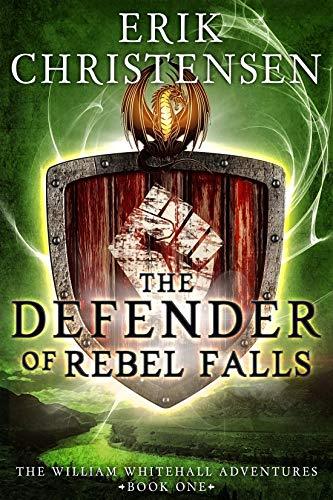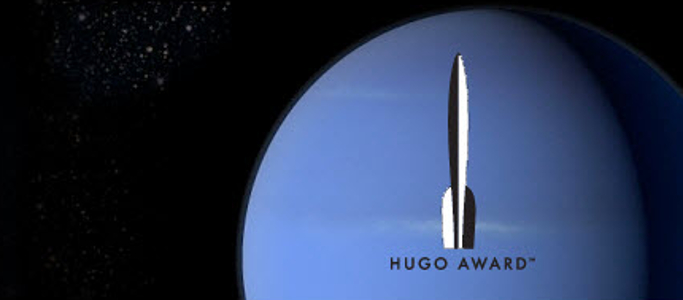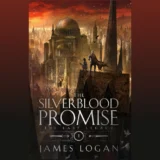Paul Cook’s essay on the badness of SF poetry makes a few good points—while being woefully clueless in other respects. As someone with a passing fondness for speculative literature, and as one who has previously criticized the low standards that prevail in much of genre poetry, I’d like to address the issues that have been raised.
The three “big” SF&F journals are, first and foremost, not genre poetry journals, nor is there any evidence that their editors have a particular interest in poetry or expertise in poetics. To the best of my knowledge, most issues of Fantasy & Science Fiction contain no poetry whatsoever. Analog publishes “very little poetry.” Despite having had a number of my own poems published in Asimov’s, I think it is inarguable that those poems appear to be selected as filler, rather than the raison d’être of the magazine—as something that elicits a little “Hunh” from the reader rather than being—with very few exceptions—mind-blowingly wonderful.
One asks oneself why Mr. Cook took these periodicals to be representative of genre poetry publishing, and what his own level of literary expertise might be. Many journals specialize in genre poetry; he mentions none of them, not even Star*Line itself, the official journal of the Science Fiction Poetry Association (disclaimer here: I am the current editor of Star*Line), or its online congener, Eye to the Telescope—nor is there any evidence that he has read further within the milieu in question. My main argument with his conclusions stems from the apparent paucity of his research. There are over one hundred publications listed on the sfpoetry.com Markets page, at least half of which publish only speculative poetry. He has mentioned none of these, which makes it unlikely that he has read any of them. Moreover, if I were to cite examples of non-soi-disant “literary” SF authors, neither Orson Scott Card nor Harlan Ellison would be on my go-to list. And I disagree profoundly with Cook’s opinion of “Ragnarok.”
I am, in general, as unhappy with the typical quality of Rhysling-winning poems as Mr. Cook—and I speak as a Rhysling winner. The often-incestuous nature of the nominating-and-voting procedure and the lack of interest as demonstrated by the absence of nominations from a substantial percentage of the SFPA membership may be responsible for this. The winning poems tend to be cute or overblown (my own winning poem, “Eating Light,” falls into the first category), and often lack any broad literary appeal. However, I don’t necessarily disparage cuteness or humor per se—nor do many of the august “mainstream” poets whose names Mr. Cook mentions. Billy Collins, XJ Kennedy, and a host of other highly regarded non-genre (usually) poets are not above publishing works that are hilariously funny. Anyone who thinks “real” poets don’t stoop to light and frivolous verse needs to familiarize themselves with Auden’s dirty limericks—and anyone who judges the silly, fluffy stuff as if it were meant to be analyzed on the same level with more ambitious literary poems is being disingenuous. To give an example from the mainstream world, I think most educated poets are familiar with “Sestina Bob”; no one claims that this is a great literary work, but every poet I know who has read it has thoroughly enjoyed it. And I think that enjoyment (not the least of which is the mockery of the form) is a sufficient reason for its existence.
Despite Mr. Cook’s ostensible familiarity with poetry-as-literature, he has apparently failed to notice that speculative poetry regularly appears in non-genre journals; Rattle, an eminent mainstream poetry magazine, recently devoted an issue (Winter 2012) to speculative poetry. Why does he not have a look at those poems, and tell us how they fail? Looking for quality SF poetry in the genre fiction journals is a mistake: science-fiction poetry is not a subset of science fiction; it is a subset of poetry.
I am in absolute opposition to the idea that “the nature of science fiction itself” has anything to do with the defects present in some of SF poetry. There are fabulously good literary works within science fiction; nothing prevents the same level of craft from being present in speculative poetry—indeed, I feel that the last three issues of Star*Line, which I edited, include poetry that deserves major praise (recent Editor’s Choice poems can be found in the Star*Line archives). I myself have won national and international literary awards for poetry—mostly from venues outside the genre—and my speculative poems have been published in enough mainstream journals that I suspect much of my own work will meet a rigorous definition of “literary.” I believe—this may be an idiosyncrasy—that the use of anecdote (at least implied narrative) and tropes is essential to the identity of genre. It is certainly possible to write good poems without involving either, but I defy anyone to write a good speculative poem without any use of trope or narrative. The idea that SF poetry by nature cannot be transcendent, elusive, or mysterious is poorly rationalized and stems from inadequate exposure.
Aside from the idea of criticizing SF poetry for excessive “realism” being inherently ludicrous, I don’t think there is any problem with either realism or specificity per se. What neither Cook nor I want is poetry that is only line-broken prose, and bad prose at that. What we both want to see is poetry that is rich and layered. However, there are many ways of accomplishing those multitudinous echoings, and I think that “Ragnarok” succeeds brilliantly. It uses a form so archaic that very few modern poets, even inveterate formalists, attempt it. What is fascinating and jarring are precisely those realistic, specific details: the intrusion of the indubitably modern (the office building standing in for a castle, the Glock Nine for the inherited sword) into the antiquated structure, diction, and setting of an Icelandic saga—and the poetic form chosen is absolutely indispensable to the effect. The post-apocalyptic elements build and build; I consider the poem a tour de force. The blunt narrative of violence perfectly suits the story at hand—and let us not forget that the form it imitates was itself intended as a historical narrative of violence.
The quoted Robert Bly poem, in contrast, reads like a Dear Diary entry from a lamentably pedestrian life. (Always there are readers who will find levels of interpretation that are not actually present in the work.) Ironically, the content of Emily Dickinson’s “Because I could not stop for Death” is absolutely speculative. (A personification of Death? Time travel?) I would be happy to receive submissions of its quality for Star*Line. And the Jarrell poem (dead guy speaking?) is pure horror.
I think that Paul Cook’s problem with SF poetry comes mainly from his selection process. He is not finding—or, indeed, looking for—the best that SF poetry has to offer. Placing a narrow selection of recent genre poems up against the literary cream of the last century or so is unrealistic. There is a plethora of crappy poetry in the mainstream lit world, too, but if I were looking for current mainstream poets to discuss, I’d go to the first-tier poetry journals, not some magazine that uses poetry as an occasional filler.
I’m very proud of the poems I’ve selected for the last few issues of Star*Line. They cover a range from funny, light verse to work that I consider the equal of the best that contemporary mainstream poetry has to offer. I’d like to see even better submissions; I wish I had more poems that meet my standards to publish in Star*Line. SF poems of superlative quality can be found in other genre as well as non-genre periodicals, both flavors of which I make a point of reading on a regular basis. Certainly not all the SF poetry I encounter is good—but Sturgeon’s Law applies equally outside the genre.
My problem with speculative poetry has never been with a lack of excellence at the top tier of genre poetry. What disappoints me is the failure of so many poets who identify as genre to broaden their writing (and reading) skills. I often get the feeling that few speculative poets ever read contemporary poetry outside their genre, resulting in a stagnation of ability and range (given the paucity of Rhysling nominations, I wonder how much SFPA member poets read within their genre). And when they evade the opportunity to step up to the plate and submit their work to mainstream literary journals as well as genre publications, they are not testing their work against broader literary standards, nor are they promoting speculative poetry to the public—a public, I have found, that will eagerly consume genre poetry if offered excellent work. And excellent SF poetry is out there. And it is not hard to find.











Well, the fact is that science fiction poetry cannot stand up to regular poetry, regardless which poems you look at. No one outside the very small, insular world of SF poetry takes it seriously. No one, outside of the SF poets themselves, writes about it. And you'll see no major critic in the contemporary poetry field would ever consider taking seriously a science fiction poem by any science fiction poet. And remember one other thing, like it or not, when sf poetry appears in Asimov's, F&SF, and Analog, those are the places where it's most visible. I don't have to "dig" up the "good" sf poets or go find the good poems. Because as long as they're written as sf poems, focusing on the conceits and tropes and images first, they'll always fail. Always.
Paul, with all due respect, I don't understand why it makes any difference whether SF poetry is accepted by the literary mainstream. If a poem is well written, it's well written, whether it's SF or not. It doesn't have to be accepted by mainstream poetry critics to be a good poem.
Can a well written SF poem stand up to "regular" poetry? Sure it can, as long as it's evaluated on the merits of the poem itself, rather than on whether it's considered to be part of a bastard genre. That's broadly critiquing the genre, not the work. A meta critique is not a valid critique, in my opinion.
"science-fiction poetry is not a subset of science fiction; it is a subset of poetry."
Hear, hear! This, in one short line, says it all for me. My main complaint with Cook's article, which I tried to articulate in the comments, is his claim that science fiction poetry "cannot" reach a level of high quality, and he bases that broad generalization on three magazines that do not focus on poetry. I have nothing against Asimov's, F&SF, or Analog; I have numerous friends who have been published in those magazines, and I would love to see my own work in those pages someday. (Of course, that would require me to submit work to them … ahem.) Implying that quality SF poetry doesn't or can't exist because it doesn't appear in the "big three" is unfair to the magazines, the poets, and the genre in general.
Thank you, FJ, for your thoughtful and inclusive response to Cook's article.